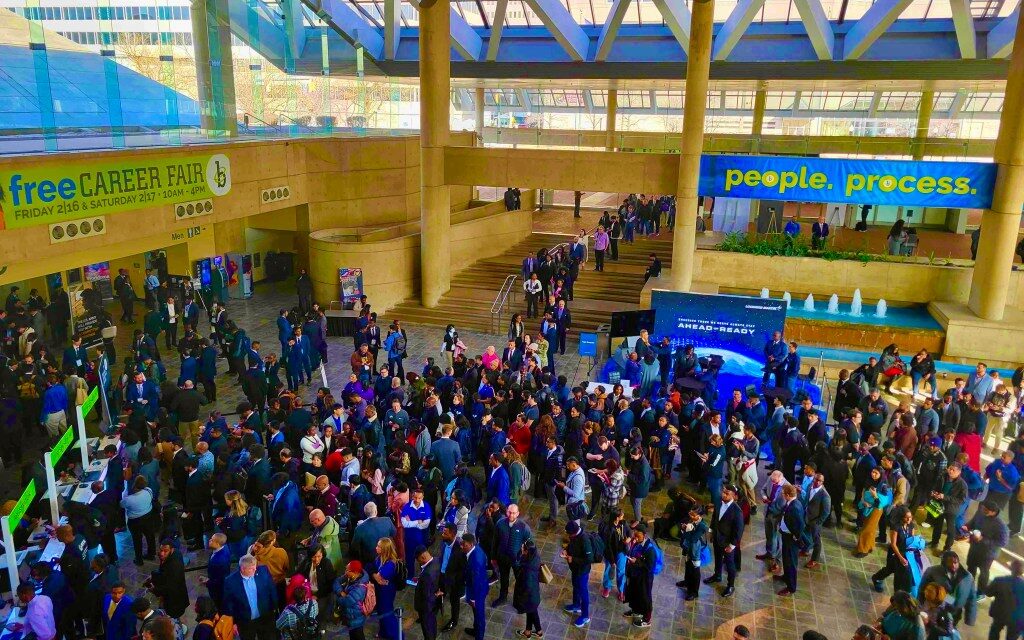
By Megan Sayles,
AFRO Business Writer,
msayles@afro.com
Several experts in artificial intelligence (AI) gathered at the 2024 Becoming Everything You Are (BEYA) STEM Conference, organized by Tyrone Taborn’s Career Communications Group, on Feb. 16 to discuss the power and potential of the emerging technology. The seminar addressed the importance of AI adoption, its impact on the workforce and barriers to implementing AI.
Fear, triggered by misconceptions and a lack of education, was named as one of the most significant challenges to individuals embracing AI.
“The first problem is education. There’s a lack of information around what these technologies can and can’t do,” said Marcus Finley, CEO and digital director of FIN Digital. “The first thing people think of is ‘Terminator,’ the end of the world or that their data is insecure if they use AI tools or technologies.”
Without proper education about AI, individuals– especially those who are underserved– may refuse or be unable to use the technology. This could delay tech equity, preventing people from having equal opportunities to utilize and benefit from emerging technologies.
“Tech equity is a major issue across our nation when it comes to minorities leveraging technology and being aware of technology,” said Howard R. Jean, CEO and co-founder of Black Meta Agency. “Creating partnerships with BEYA and corporations [is important] to addressing equity.”
Tonia Bledsoe, a certified AI consultant and strategist, recommended that people test AI tools, like ChatGPT and Perplexity, before making judgements about the technology. She said AI could be especially beneficial in the education sector.

“AI is here. Students will use these tools, but we now have to figure out how we can get back into the classroom and show them how to use it correctly and how to research with it,” said Bledsoe, owner of Bledsoe Legacy Management. “Then, because teachers are not doing so many administrative tasks, they can talk to their students and engage with them in a more educational way.”
As AI emerges, many have raised concerns about its potential to replace jobs across industries, as the technology has the ability to automate tasks and reduce labor costs. But, experts on the panel said AI can be designed to augment workers’ capabilities and increase productivity rather than put them out of a job.
“I think you should be less worried about AI taking your job and more worried about the person who knows AI taking your job,” Finely shared. “If you don’t understand the technology, the people you’re competing with who do understand it will get the job you’re looking for because they’re working faster and getting more things done. They can be more useful to a company than someone who doesn’t understand these technologies.”
Bledsoe acknowledged that some jobs will be lost to AI, but overall the technology will create more jobs than those lost in the future. That being said, workers must have experience and knowledge in AI to be prepared for these roles.
“If you’re not using AI within the next two years, your businesses and the things you’re doing are going to be far behind,” said Bledsoe. “You will feel like people are leapfrogging over you if you’re not employing this technology.”
Megan Sayles is a Report For America corps member.
The post BEYA STEM Conference highlights STEM opportunities, evolving landscape of AI in 2024 appeared first on AFRO American Newspapers.









